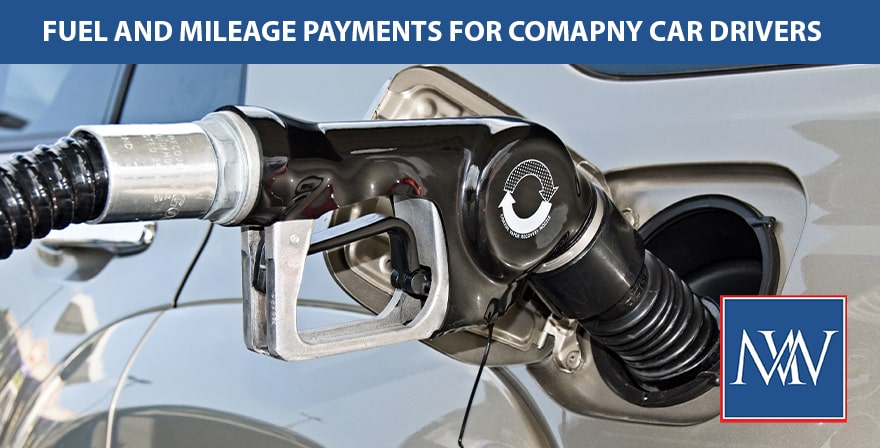
Fuel and mileage payments for company car drivers
The car benefit tax charge does not cover fuel provided for a company vehicle. Where the company pays for all fuel (business and private), the fuel benefit will be charged, which is based on the cash equivalent of the benefit each tax year (£24,100 for 2019/20 multiplied by a percentage depending on the car’s CO2 emissions).
If the company pays for all fuel, but the employee reimburses the company for private use, as long as the amount paid back is equal to, or more than, the amount for personal fuel in the same tax year, the employer will not have to pay anything to HMRC or report on such transactions.
Where the employer does not directly meet the cost of fuel used for business in a company car, but pays the employee a business mileage allowance, no fuel benefit charge will arise if the mileage allowance does no more than meet the cost of fuel used for business travel. If the mileage allowance is excessive, but it’s only paid for genuine business travel, the ‘profit element’ will be chargeable to tax in the normal way. However, a car fuel benefit charge will arise where, for instance, the payments to the employee cover travel between home and work.
An employee using their own car for work can claim a mileage allowance from their employer, which is designed to cover the costs of fuel and wear and tear for business trips. The mileage allowance will be tax-free if it does not exceed HMRC’s Approved Mileage Allowance Payment (AMAP) rates (currently 45p per mile for the first 10,000 business miles in the tax year, and 25p per mile for each business mile over 10,000 in the tax year).
The AMAP scheme does not apply for company cars. However, employees can still claim fuel expenses for all business mileage where they pay for the fuel. The rates are lower than the AMAP rates and are updated quarterly. Current and previous rates can be found at https://www.gov.uk/government/publications/advisory-fuel-rates.
HMRC’s guidance on fuel-only mileage rates for company cars confirms that employers are not obliged to use advisory fuel rates. Where an employer wishes to use them, they only apply where the employer:
- reimburses employees for business travel in their company cars; or
- requires employees to repay the cost of fuel used for private travel in those company cars.
If the employer pays more than the relevant advisory fuels rates and the payments are not an actual reimbursement, the excess is taxed and subject to employees’ and employers’ National Insurance Contributions.
Advisory fuel rates do not apply to electric cars, so any mileage payments should be based on actual costs incurred.
Where an individual is provided with workplace facilities for charging a battery of a vehicle used by them (including as a passenger), no taxable benefit arises for costs relating to the provision of electricity at those facilities if the following conditions are met:
- the charging facilities must be provided at or near an employee’s workplace
- charging must be available to either all the employer’s employees generally, or all the employer’s employees generally at the employee’s workplace
- charging facilities must be for a battery of a vehicle in which the employee is either the driver or a passenger.
The benefit will remain taxable if it’s offered in conjunction with an optional remuneration arrangement.
Need Accountancy Support?
For information on bespoke training, or if you have any other questions for Makesworth Accountant, please fill in your details below




















 148
148